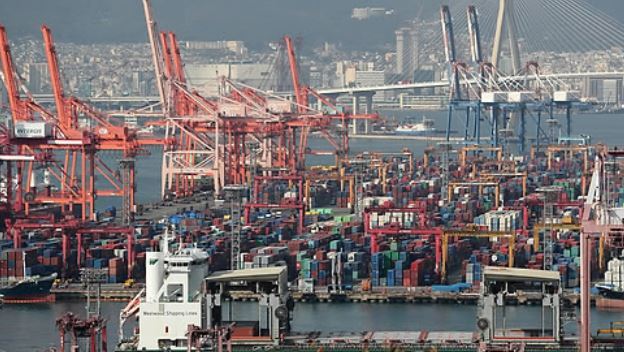South Korea will take proactive measures to boost exports to keep the growth momentum going despite rising protectionist policies by major trading partners and fewer working days in February, the trade ministry said Tuesday.
The Ministry of Trade, Industry and Energy expected the export growth will slow this month due to fewer working days from the Lunar New Year holiday, which falls later in the week, coupled with rising import restrictions by major economies.
"The internal and external environments are not favorable for exports in February," Kim Young-sam, deputy minister for trade and investment, said in a meeting with local trade associations. "In addition to fewer working days, rising import restrictions and intensifying trade conflicts with the United States and China could negatively affect South Korean exports."

South Korea's exports fell 1.8 percent on-year during the first 10 days of February due to fewer working days, according to the data from the Korea Customs Service.
The ministry said it will spend 60 percent of the marketing budget for exports of 155.9 billion won ($143.8 million) in the first half of this year and explore ways to boost economic ties with emerging economies in Southeast Asia to diversify overseas markets.
The country's exports have been expanding since November 2016 thanks to brisk sales of memory chips and petrochemical products, but the government has been pushing to foster new growth drivers to protect the export-driven economy from potential downside risks.
Local companies have expressed concerns over rising trade barriers after the US slapped a set of safeguard tariffs against foreign-made, large residential washing machines and solar panels, including those from South Korea.
Under the safeguard measures, a 20 percent tariff will apply on the first 1.2 million washers imported in the first year and a 50 percent tariff on machines beyond that number. A 30 percent tariff will be imposed on imported solar cells and modules above 2.5 gigawatts in the first year. (Yonhap)



















![[Today’s K-pop] BTS pop-up event to come to Seoul](http://res.heraldm.com/phpwas/restmb_idxmake.php?idx=642&simg=/content/image/2024/04/17/20240417050734_0.jpg&u=)